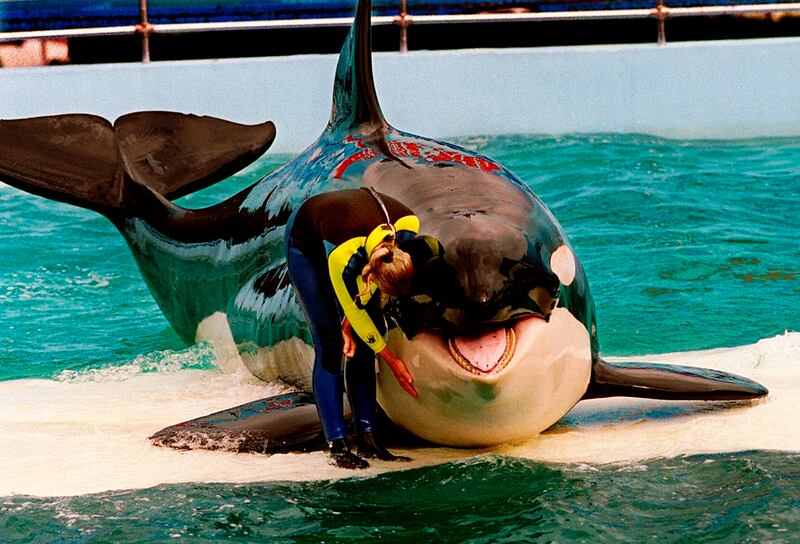After more than half a century of performing for the public within the confines of the Miami Seaquarium, the orca dubbed “Lolita” will be released back into her native waters in the Pacific Northwest, according to a recent announcement.
The plan to release the killer whale was announced last month at a news conference, and was the result of a “an unlikely coalition involving the theme park’s owner, an animal rights group and an NFL owner-philanthropist,” The Associated Press reported. The owner-philanthropist in the mix is Indianapolis Colts owner Jim Irsay; “I’m excited to be a part of Lolita’s journey to freedom,” Irsay said, per AP. “I know Lolita wants to get to free waters.”
Lolita’s background
Lolita, also known as Tokitae or Toki, was captured from the waters of Washington’s Puget Sound in 1970 and is currently about 57 years old.
Since being captured “in one of the last drive hunts for live orcas held in the Pacific Northwest,” Lolita has spent over five decades in “an 80-by-35-foot concrete tank at Miami Seaquarium,” the Miami New Times reported.
Lolita is classified as an endangered Southern resident killer whale, “a genetically and socially distinct population that frequents the Salish Sea between Washington and British Columbia,” per AP. Of the three remaining Southern resident orca clans, it is believed that one of the orcas in those clans is Lolita’s mother.
Lolita was only a few years old when she was captured and brought to the Miami Seaquarium to perform in shows for the park’s patrons. Before she was a tourist attraction, she swam in a tight-knit pod, as orcas are known to do.
When will Lolita be released?
The Dolphin Company, who owns the Miami Seaquarium, reached an agreement to release the orca and signed a deal with Friends of Lolita, a Florida nonprofit group, according to NPR.
In their announcement of the plan to release Lolita, The Dolphin Company tweeted that the release will happen in the next 18 to 24 months.
How will Lolita be released?
So how exactly does a 7,000 pound orca get transported safely from one end of the United States to the other? It’s complicated. The New York Times’ reporting outlined some of the key logistical details surrounding the plan to release Lolita:
- During the news conference, Irsay said that he would help with the costs associated with Lolita’s relocation, “which could rise to eight figures and could require the use of a 747 plane or a C-17 military plane,” The Times wrote.
- Irsay also stated that the feat of moving such a large marine animal may include constructing a sanctuary within the Pacific Northwest ocean, and could involve bringing dolphins on the journey, to keep Lolita company, and trainers to help the orca acclimate to her new surroundings.
- In order to have a chance of survival in the wild, Lolita will need to re-learn “how to catch fish again,” Irsay said. “She doesn’t know how to do that anymore. She’s been in captivity too long.”
- Because of Lolita’s species’ classification, the relocation may require federal approval.
Both sides of the argument
While the long-awaited, forthcoming release of Lolita is being celebrated by animal rights advocates around the globe, there are some that argue that the orca may not be able to acclimate to her natural environment after spending so much time in captivity.
Shanna Simpson, Lolita’s former trainer, told Axios that relocating the orca would be “absolute cruelty.” Simpson’s opposition to rehoming Lolita stems from her concerns over dangerous stress levels the voyage may inflict and exposing the orca to “untreated, polluted water in Puget Sound,” per Axios.
“I fear that when people see that she’s being brought home, people will imagine it’s just going to be a sort of Free Willy moment where she swims over and connects with her family. I can’t imagine that happening,” said Jason Colby, a University of Victoria professor and environmental historian, BBC News reported. But, that’s not to say the relocation would be a failure. “If her coming back makes people commit to making sure that this orca family has a healthy place to live then it will be a great success,” Colby said.


